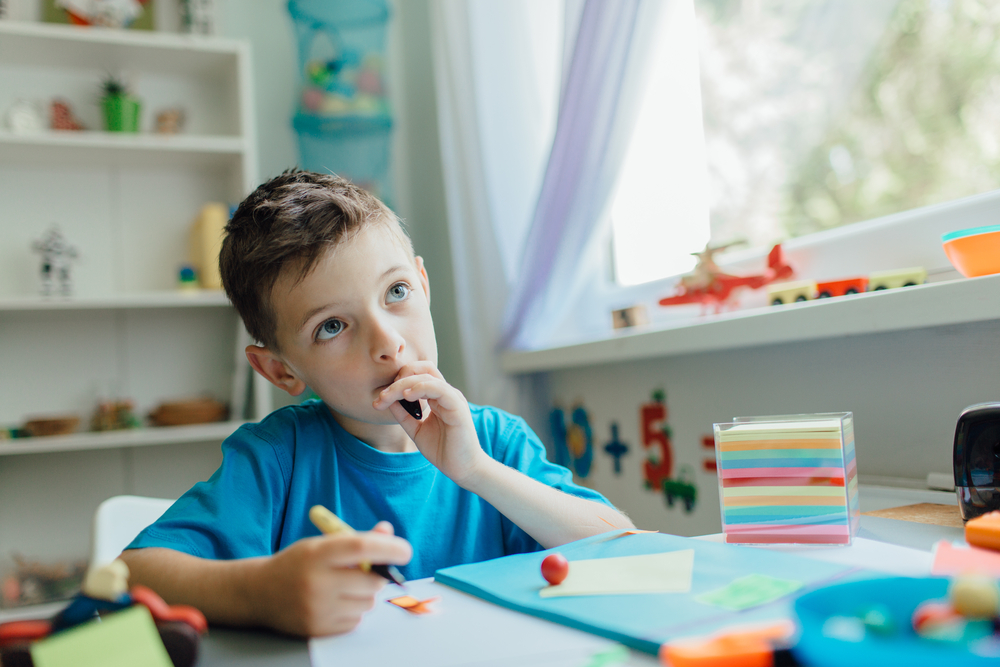Problem-Solving Skills Life Science Worksheets for Ages 5-8
4 filtered results
-
From - To
Unleash your child's potential with our Life Science Problem-Solving Skills Worksheets, specially designed for ages 5-8! These engaging resources boost critical thinking and scientific reasoning through fun, age-appropriate activities. Each worksheet challenges young learners to explore concepts such as animal behaviors, plant life cycles, and habitats, fostering curiosity and problem-solving abilities. Perfect for classroom and home use, these printables provide a hands-on approach, helping kids make real-world connections while enhancing their science skills. Download today and watch your child become a budding scientist with a passion for discovery!
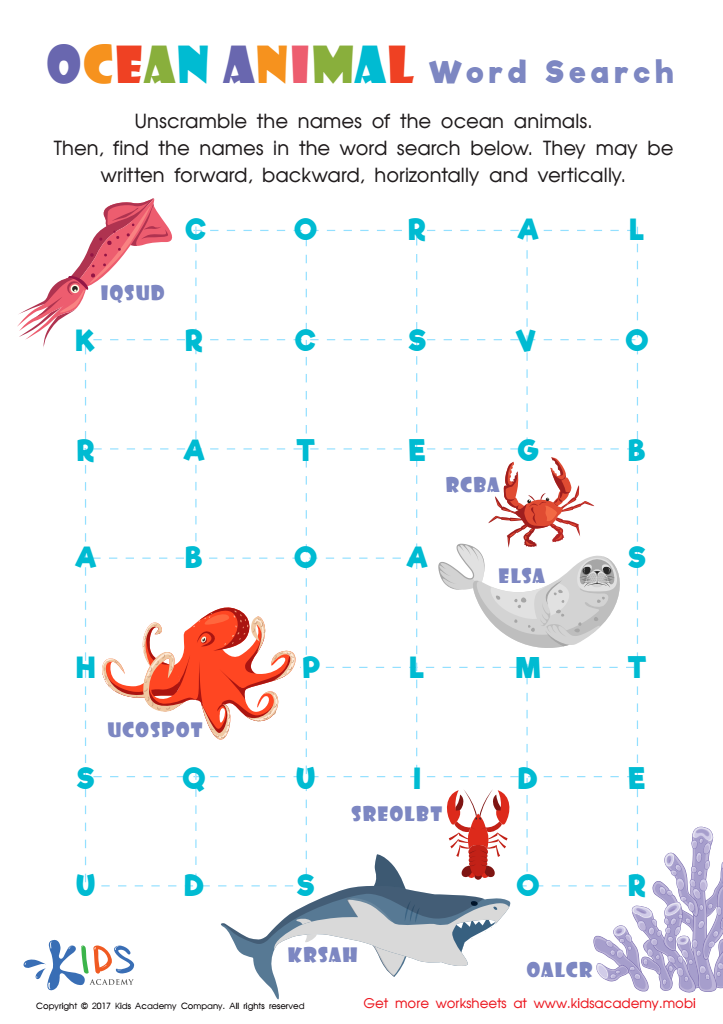

Ocean Animals Word Search Printable
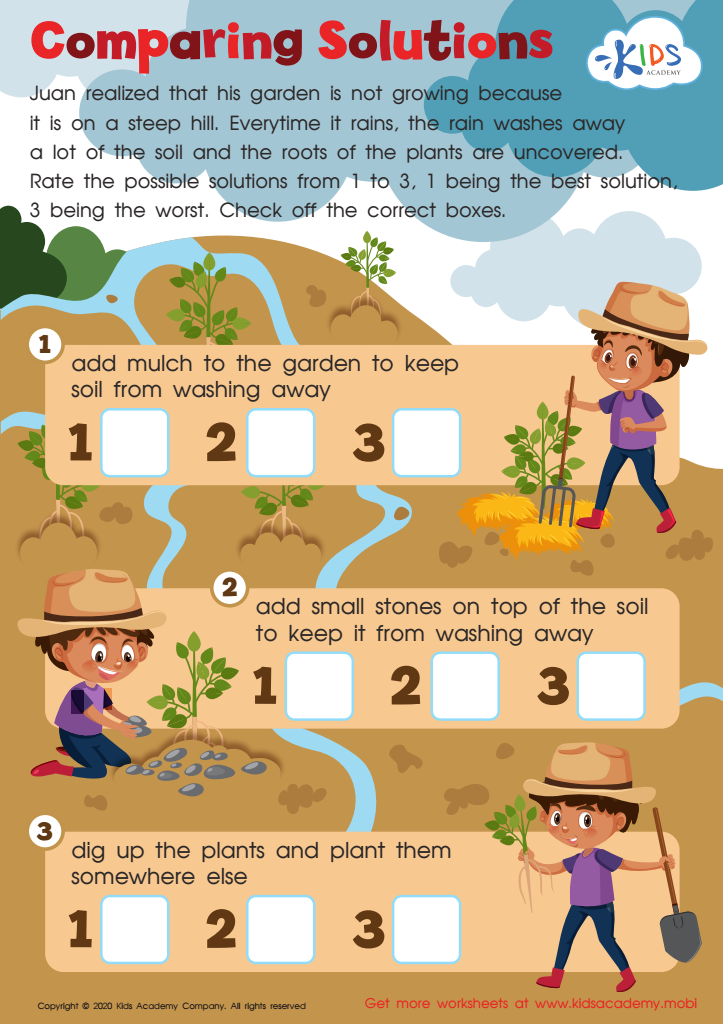

Comparing Solutions Worksheet
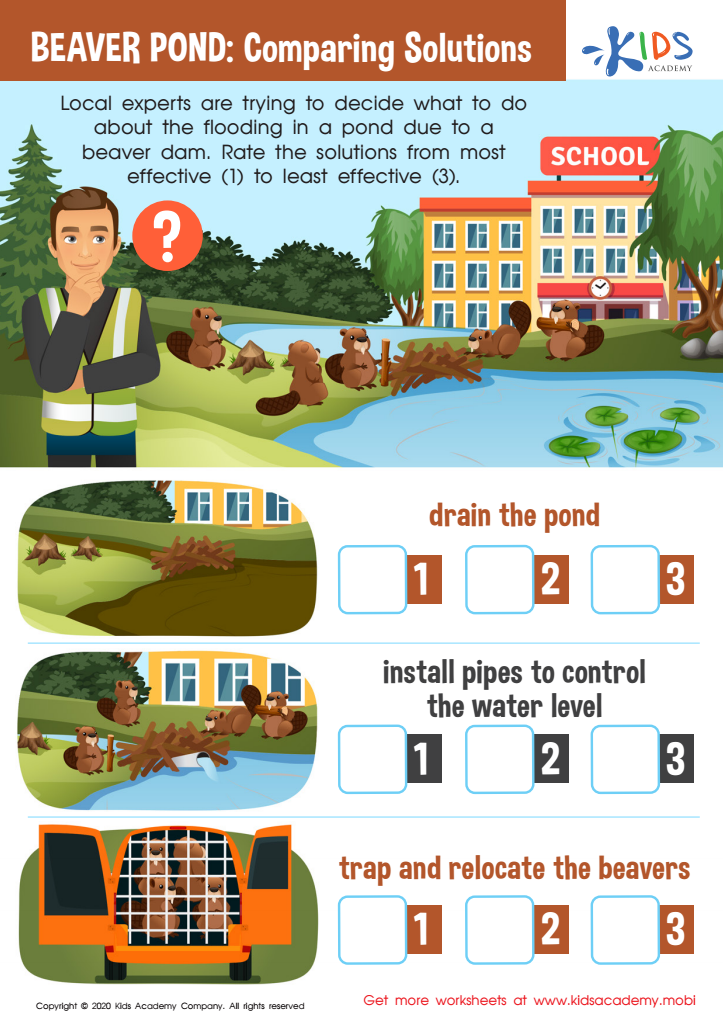

Beaver Pond: Comparing Solutions Worksheet
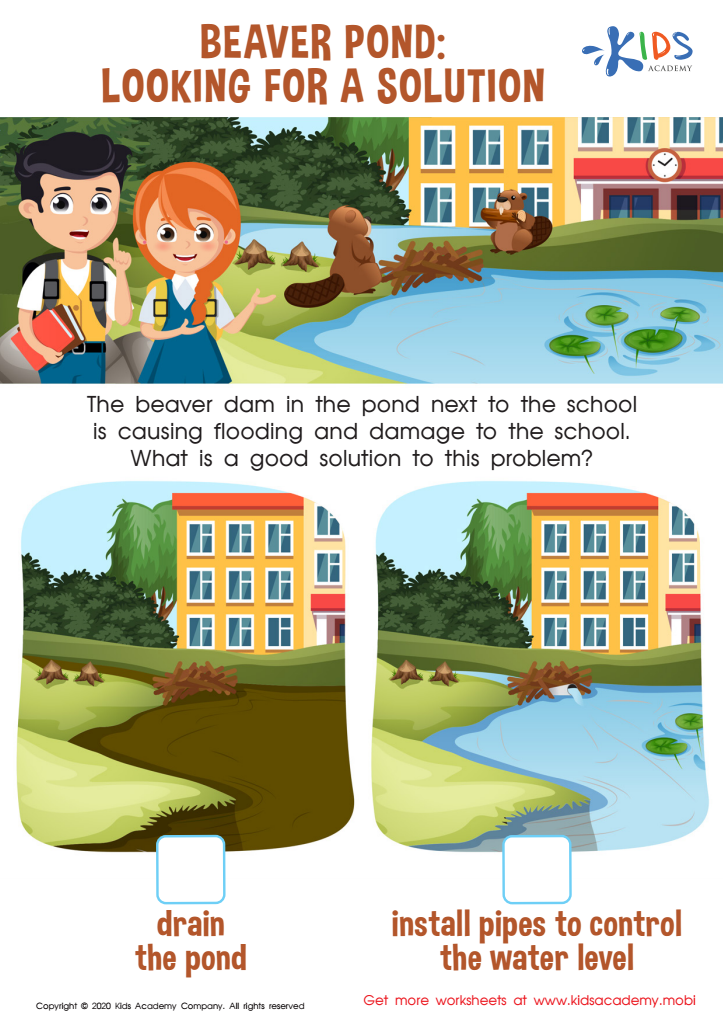

Beaver Pond: Looking for a Solution Worksheet
Parents and teachers should care about developing problem-solving skills through life science in children aged 5-8 because it lays the foundation for critical thinking, curiosity, and a lifelong love of learning. At this formative stage, children are naturally curious about the world around them, making life science a captivating avenue for engaging their minds. Learning through problem-solving exercises in life science encourages students to ask questions, test hypotheses, and find solutions, all of which are crucial skills for intellectual development.
Moreover, problem-solving in life science enhances cognitive abilities, fostering higher-order thinking skills such as analysis, synthesis, and evaluation. These abilities are transferable to other academic subjects and real-life situations, making children more adept at handling various challenges.
This approach also instills perseverance and resilience. When children encounter problems and work to solve them, they learn that persistence and effort are essential to overcoming obstacles. These experiences build confidence and a growth mindset—a belief that abilities can be developed through hard work and dedication.
Furthermore, engaging in life science problem-solving activities helps improve collaboration and social skills. Projects often require teamwork, encouraging children to communicate effectively and work together harmoniously.
In essence, nurturing problem-solving skills through life science prepares children not just academically but also socially and emotionally, equipping them with the tools to succeed in an ever-changing world.

 Assign to My Students
Assign to My Students







